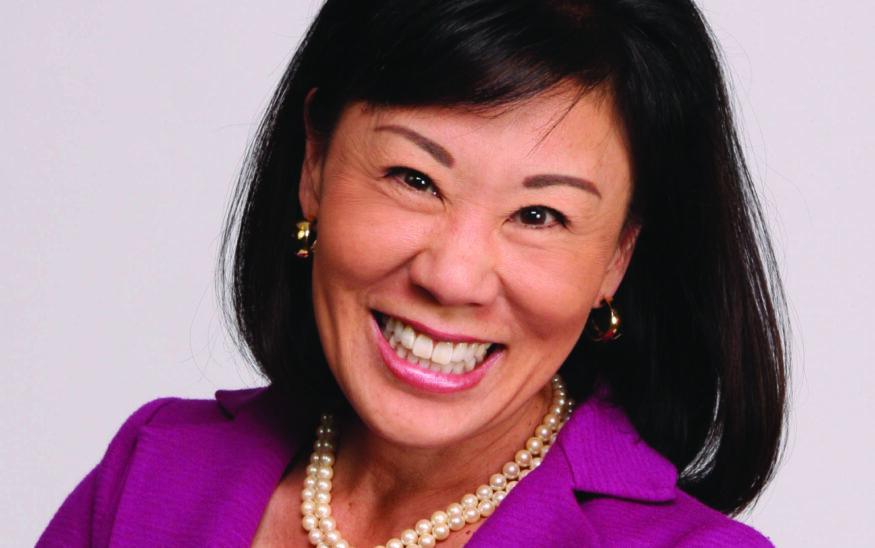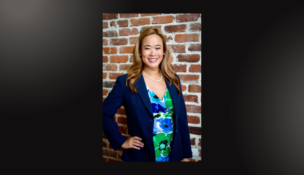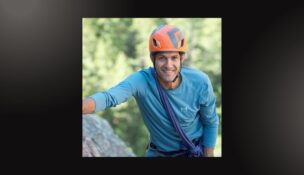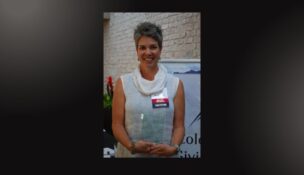Good Company — Becky Takeda-Tinker & CSU Global
Returning to the campus she helped build, Becky Takeda-Tinker couples her historical knowledge of online education with a deep-rooted commitment to serving nontraditional students.
Jamie Siebrase //June 26, 2023//


Good Company — Becky Takeda-Tinker & CSU Global
Returning to the campus she helped build, Becky Takeda-Tinker couples her historical knowledge of online education with a deep-rooted commitment to serving nontraditional students.
Jamie Siebrase //June 26, 2023//
Explore an insightful interview with Becky Takeda-Tinker, President and CEO of CSU Global, discussing the value of online education, the evolving role of AI in learning and her personal journey in higher education. Gain valuable advice on pursuing a post-secondary degree and discover the future of education in a post-pandemic world.
READ: Good Company — R.T. Custer & The Vortic Watch Company
Hometown: Danville, California
What she’s reading: “2030: How Today’s Biggest Trends Will Collide and Reshape the Future of Everything,” a book by Mauro F. Guillén about trends that are rapidly changing our world. “Especially coming out of Covid, I love looking at what people think the future may hold.”
Becky Takeda-Tinker
President and CEO of CSU Global
Denver
ColoradoBiz: From artificial intelligence to the evolution of online education, there’s a lot to cover. Before we dive in, though, can you share advice for readers who are working full-time, thinking about pursuing or completing a post-secondary degree?
Becky Takeda-Tinker: If you’re considering going back to school to earn a degree, start by researching programs that are asynchronous, where coursework can be completed on your own time, from any location, to fit within your schedule. In addition to flexibility, prospective students should consider the value and return on investment expected from the education. How will a degree help propel your professional and personal goals? That’s the key. For many students, particularly adult learners, online education is the best solution. Look for a program that provides curriculum aligned with the latest industry standards, and always seek programs from a regionally accredited nonprofit university that emphasizes career-relevant pathways.
CB: That’s right, CSU Global is the country’s first 100 percent online accredited public university. What degrees are offered, and how do enrollment and degree progression work?
BT: We offer career-relevant bachelor’s and master’s degree programs, along with certificates, mainly for working adults and nontraditional learners. Our eight-week courses start every four weeks throughout the entire year, and we offer every course every term. The whole idea is to make an advanced degree accessible to all learners.
CB: It’s hard to talk about accessibility without also talking about the rising cost of college. I think many of us are wondering if a post-secondary degree is still worth the price tag. And while we’re on the topic, is an online degree a more economical option?
BT: What we know based on third-party data is that the ROI for every 1,000 dollars spent at CSU Global is 4.9 times the investment, which is strong. How does that compare to other institutions? That’s anyone’s best guess. It’s worth noting that pursuing an online versus in-person program can eliminate costs associated with on-campus housing, student fees and transportation. Plus, online programs at institutions that serve nontraditional students often have pathways to apply previously earned college credits toward their programs. CSU Global, for example, accepts up to 90 credit hours toward a bachelor’s degree. I’ll add that debt isn’t always a bad thing if you have a plan, and if earning your degree will help you move beyond where you are today. I really believe education is an investment in one’s future. That’s why I’m back at CSU Global.
CB: You helped build CSU Global in 2008, then you took a hiatus. Why’d you come back?
BT: I started my career in private equity, but I found myself in a phase of life where I felt it was time to give back to society. I got my Ph.D. in 2007, with the intent to teach higher education. In 2008, I applied to be a community college instructor, and somebody passed my resume along to CSU Global’s HR department. I got a call asking if I wanted to work on the school’s career-relevant curriculum. We opened in 2008 to 200 students. By 2009, CSU Global had about 900 students, at which point I knew we needed to apply for regional accreditation. Being the first fully accredited, public online university was unique at the time. Back then, there were seven other state systems that had tried to create a similar entity, but they were unable to get stabilized. We were driven to be nimble because of the nontraditional students we were created to serve. When I left in 2020, to work on Colorado’s economic recovery, we’d graduated over 20,000 students. I was asked to return to help facilitate the next chapter of CSU Global, and who can ignore a challenge like that coming out of Covid?
CB: Why the interest in higher education?
BT: My husband is retired Air Force, and I am very much about American competitiveness. Not everyone needs a college degree, but for those who want it, it’s important to be able to have credible, high quality, affordable education. But it’s more personal than that. My dad was the first in his family to go to college. This was after the war, after they got out of the camps, and I understood that education made a difference in our lives, in how our family was living compared to others in our neighborhood. My dad worked three jobs while going to Berkeley. That’s how he was able to pay for school, but he didn’t really get the full academic experience. CSU Global represents, in my mind, a way for students having to work full-time to still be connected to their peers and have relationships with their instructors.
CB: Are you referring to the Japanese American internment camps?
BT: Yes, it was the internment camps. My dad was in them starting as a toddler until about 7 years old. When they were released they had no money/savings, no place to live etc., so they somehow made it back to Sacramento where they had been living prior to the war, and ended up running a hotel in a not-so-good part of town. There were five kids and my grandmother, who spoke very little English at that time, but at least they had a place to live and food to eat. From that environment my dad decided that getting a degree could provide a better life, so as he grew up, he put himself through UC Berkeley to earn an electrical engineering degree, and from that he married my mom and started our family of three girls and helped the rest of his family.
CB: OK, I’m bringing up the elephant in the room now. There used to be a stigma with online education. How have online degrees evolved over the past few decades?
BT: In the early days, to prove online education credibility, the institution provided extensive annual third-party data regarding student workforce success, to show that high quality online education could provide a return on investment. Online programs have grown exponentially since then, with many brick-and-mortar campuses launching their own fully online courses, so they, too, have become proponents of online education. Even before the pandemic, interest in online programs was growing, due in part to its flexibility, as well as technological advances making online courses more engaging. With new tools and resources, the student experience keeps getting better, and the quality of content has improved. One result of the pandemic is we’re seeing a significant shift in higher education in general, including fewer high school students choosing to pursue a traditional, in-person, four-year degree program. There’s a greater trust, today, in online and hybrid programs from accredited schools. A number of online institutions are now regionally accredited, meaning they went through a comprehensive, peer-reviewed process that ensures a consistent standard of quality. But it is not just online education that has changed. The interests and needs of students changed, too. In early 2000, the number of American high school graduates going to college began declining. What I think we’re seeing is a market that’s very differentiated. People who are looking for higher education are very clear in what they want now.
CB: So, is online education the future for all learners in the wake of the pandemic, or is this still a niche group of working and nontraditional students?
BT: The future is solutions that can be customized to meet students where they’re at, and give them what they’re seeking. Hybrid is a popular option now, not just at school but work. Everyone wants to do a couple days in and a couple days out. I think having the options available and transferability is big now, along with stackability.
CB: Did the pandemic help to legitimize online programs?
BT: At the beginning of the pandemic, on one hand we saw an unprecedented opportunity for innovation in online learning. On the other, many misconceptions grew around the quality of online programs. Many schools were forced to move quickly to what we consider emergency remote learning. Teachers and students moved to virtual platforms in a matter of weeks, which does not reflect the quality of a truly robust online program like ours. And yet thanks to the technological advances that have taken place in every industry sector during the pandemic, there has also been a positive shift in perceptions of online learning. The pandemic not only altered education — it also altered the way we work, and students who earn a degree online are equipped with the skills needed to succeed in a fully remote or hybrid work environment.
CB: Speaking of contemporary changes, what do you see as the increasing role of artificial intelligence in education?
BT: In a lot of ways, AI is a very helpful technology, and since all industries are now tech-driven, I think it can help us learn what we need to do to get to the next level of global competitiveness. When I look at AI, I’m not at all afraid of it. I’m very comfortable with it, but the education has to be there on how to use it to help students learn. When I came back to CSU Global, I knew we needed to do some course revisioning. Our mission is to serve nontraditional students toward professional success. Beyond academic success, we want to provide the skills needed for workplace advancement. How do we make assignments relevant to a workplace application, so that students understand the value of the work that’s assigned? That’s what we’re tackling right now during this exciting time.
Jamie Siebrase is a freelance writer based in Colorado.

























